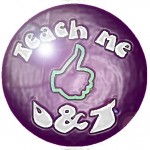Group work in Design and Technology can provide excellent opportunities in teaching and learning.
When grouping pupils, there are some factors you should consider:
- Inform pupils of the benefits and your expectations of working in a group. One of those should definitely be that all members should take an active role in the task.
- Make sure the task is worthwhile and suited to group work. I will offer some of my personal examples later on in the article.
- Ensure you are clear on your grouping choice system. For example are you going for friendship groups, ability, interests, self or pupil selected etc?
- Allow opportunities for reflection and evaluation to discuss how effective the group work was and suggestions on improvement. We all know evaluation is a key component in the design cycle, so it should be integrated in our lessons too.
After some extensive research there is a real limited amount of information and ideas out there. But there is no good having knowledge if you do not know how to use it. What good are these tips if we don’t know how to implement them? Fortunately this is where I can help.
I have come up with a few group work ideas which can be tailored to suit your projects or lesson objectives:
- Role Play - An example of role play that I use in lessons is to put pupils in groups of 4 and provide 4 separate roles, such as client, designer, manufacturer and marketer. They allocate roles to each other and have to work as a team through the design cycle to design and promote a product. This can go on for a number of lessons for a large project and can even be extended to involve the school where pupils have to promote their product and compete with others in the class. Pupils should then evaluate the products and work out what made them successful or not.
- Team building – This is probably the most common form of team work seen in the classroom, whereby pupils are given a selection of tools and materials and have to meet an objective. Some examples of this include building the tallest paper tower or the lightest bridge that can hold the most weight. This is fun for pupils, however on observation some pupils find opportunities to sit back and let others do the work. A way of discouraging this behaviour is to offer a prize to the winning teams and those who are not working together will be penalised. This encourages the dominant members of the group to allocate tasks instead of taking over, which in effect is exactly what the objective of group work are!
Where possible, I also recommend taking advantage of peer assessment too, as pupils learn so well from one another. Ofsted love seeing pupils talking about their learning, so give it a go in your lessons!



